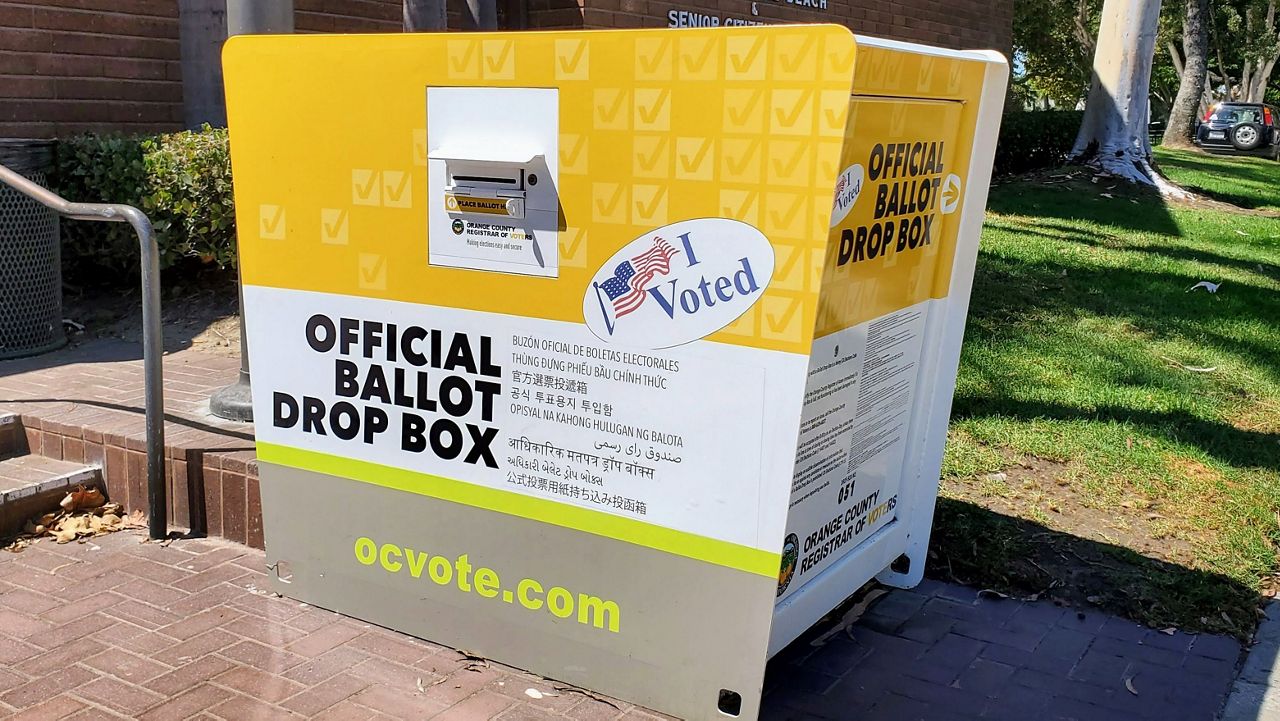COSTA MESA, Calif. — An opponent of a divisive ballot measure that passed by fewer than two dozen votes will not seek a recount due to high costs.
Costa Mesa resident Mary Spadoni had sent a written request to the Orange County Registrar of Voters on Dec. 6 for a recount of Measure K. This measure establishes a framework for real estate development in specific commercial corridors of the city.
Backed by the city council, the measure, one of the closest races in Orange County, won by 22 votes in the midterm election.
The Orange County Registrar of Voters gave Spadoni two cost estimates for the recount. A machine recount would have cost Spadoni $12,900 to $42,000. A hand recount of the votes would have cost upwards of $114,000.
Spadoni canceled her request a few days later, the Orange County Registrar of Voters told Spectrum News.
“Ms. Spadoni rescinded her request for a recount and stated that the group she represents could not afford to pay for this recount,” wrote the county Registrar of Voters’ Bob Page in an email to Spectrum News.
Spectrum News could not reach Spadoni for comment.
Spadoni told the Los Angeles Times’ Daily Pilot that the high cost of a recount is the sole reason her group rescinded the request.
“Without a doubt, this grassroots effort was a David vs. Goliath venture,” Spadoni wrote in an email to the Daily Pilot. “But once again the opposition won by 22 votes after spending almost 25 times the amount No on K spent.”
Approved by a majority of the city council in August, Measure K modifies existing land use and other regulations to allow for housing development in specific commercial and industrial areas.
The measure, in some regards, supersedes some of the city’s Measure Y, which voters approved six years ago and requires voter approval on specific development projects in the city.
Spadoni led a group of opponents against Measure K and was a staunch advocate against the measure.
Last week, she criticized and called the council members sell-outs for backing the ballot during a city council meeting.
Opponents of Measure K claim that the measure removes residents’ right to vote on certain large developments and paves the way for more dense projects that could impact residential neighborhoods and increase traffic.
Backers of Measure K said the city has been facing a housing crisis and has produced little housing development since the passing of Measure Y in 2016.
Advocates say the measure will revitalize and focus on growth in commercial areas of the city and that the community would have input on any projects in the pipeline.
City officials have also said that passing Measure K now could prevent costly and unnecessary lawsuits from the state, which has been pressuring and suing cities to up their housing production to keep up with population growth.



